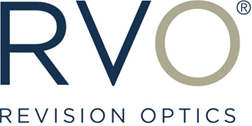The short answer? No.
While LASIK is a wonderful option to correct astigmatism, myopia (nearsightedness), and hyperopia (farsightedness), it is not as effective to correct presbyopia.
Monovision LASIK uses an excimer laser to correct one eye for near vision and the other eye for distance vision. Monovision LASIK treatment may help patients to see clearly both far away and close up without glasses or contact lenses. If a patient can see well for far distance without glasses or contact lenses, only one eye will be treated with LASIK to enable near vision. Patients may require another treatment if results are not satisfactory. Other potential complications involved with the LASIK procedure, include dry eyes and visual symptoms.
Because presbyopia is the natural change in elasticity and flexibility of the lens due to age, LASIK isn’t as effective because it cannot stop the aging process, and even eyes that have undergone LASIK in the past are still susceptible to presbyopia. For these reasons, there are more effective treatment solutions for presbyopia.
Ready for An Effective Solution To Treat Your Presbyopia?
Introducing, The Raindrop® Near Vision Inlay – a small, transparent disk called an inlay. It is made up of about 80% water and is created by materials similar to a contact lens.
This small corneal inlay is placed in your non-dominant eye during a LASIK-like procedure that gets you out the door in under 10 minutes and seeing better at near in just 7 days.
“It’s a very simple procedure, we make a flap, then under that flap we put this corneal inlay that is a very small device, looks like a little disc or raindrop, what it does is it creates a little change in the shape, a little central steepness to your cornea. You’re seeing a much broader range; you can see up close, you can see in the middle, and you can still see at distance!”, says Raindrop specialist, Dr. Bret Fisher, Medical Director at the Eye Center of North Florida in Panama City.
“The Raindrop is great! Folks who are in their 40s and 50s now have a solution to restore their full range of vision,” Dr. Fisher explains.
Want to learn more about The Raindrop® Near Vision Inlay? Find a Raindrop specialist to schedule your consultation today.

